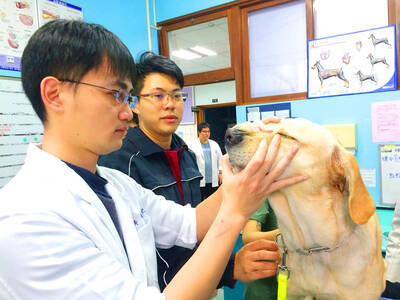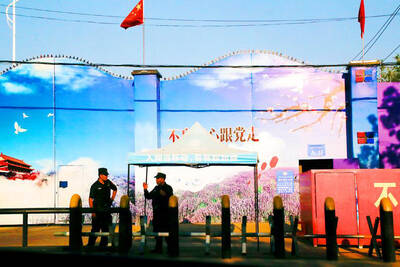People who are returning to Taiwan and wish to stay at a centralized facility for their mandatory 14-day quarantine upon arrival can, starting tomorrow, apply online for a room, the Central Epidemic Command Center (CECC) said yesterday.
The CECC last week announced that starting from Friday next week, inbound passengers would not only have to provide a negative COVID-19 result from a polymerase chain reaction test issued within three days before boarding a plane to Taiwan, but would also need to provide a quarantine location certification document.
The quarantine location must be in a centralized quarantine facility or quarantine hotel, or, if people wish to quarantine at home, they would need to sign an affidavit that no other non-quarantined individuals would be in the same unit, the CECC said.
However, as an increasing numbers of overseas Taiwanese are expected to return for the Lunar New Year holidays next month, many people have expressed concerns that there would not be enough quarantine locations.
Minister of Health and Welfare Chen Shih-chung (陳時中), who heads the center, said that the CECC would increase capacity at centralized facilities by about 1,500 to 2,000 rooms.
Hospital and Social Welfare Organizations Administration Commission Director Wang Pi-sheng (王必勝) said that there are currently 3,765 rooms at 35 centralized facilities, with an occupancy rate of about 40 percent.
Inbound passengers who wish to stay at centralized facilities can apply online at https://hdhq.mohw.gov.tw, Wang said, adding that they would receive a reservation code via e-mail.
The reservation code can be used as quarantine location certification when boarding a plane to Taiwan, he said, adding that people would be upon arrival instructed by airport staff to take designated vehicles to a centralized facility.
“The accommodation fee will be NT$2,000 per day,” Wang said, adding that no fees would be charged for children under 12 who quarantine in a room with a parent.
Deputy Minister of the Interior Chen Tsung-yen (陳宗彥), who is deputy head of the center, said that quarantine hotel capacity has been gradually increased to 16,187 rooms, from about 2,700 rooms when the policy was implemented in late March last year.
Another 1,117 rooms would be added in the next few days, he added.
Most of the additional rooms, about 450, would be in Taipei, followed by Kaohsiung, Taoyuan and Taichung, as the distribution reflects the residency of inbound passengers, he said.
The current quarantine hotel occupancy rate is nearly 50 percent and might increase after the new quarantine rules take effect, Chen Tsung-yen said.
Some local governments limit access to quarantine hotels to local residents, he said, urging the authorities to cooperate in providing rooms to incoming passengers.
Asked if family members who returned together can stay in the same room for their quarantine, Wang said that adults would need to stay in separate rooms at centralized facilities, and children under 12 could stay with one adult.
Chen Shih-chung said that family members can stay in the same housing unit, as long as no other non-quarantined individuals are there.
If one of them tests positive for COVID-19 during quarantine, the other family member would be subject to another 14 days of home isolation, he said.
Centers for Disease Control Deputy Director-General Chuang Jen-hsiang (莊人祥), who is CECC spokesperson, said that people who quarantine in the same unit should stay in separate rooms with independent bathrooms.

Former Czech Republic-based Taiwanese researcher Cheng Yu-chin (鄭宇欽) has been sentenced to seven years in prison on espionage-related charges, China’s Ministry of State Security announced yesterday. China said Cheng was a spy for Taiwan who “masqueraded as a professor” and that he was previously an assistant to former Cabinet secretary-general Cho Jung-tai (卓榮泰). President-elect William Lai (賴清德) on Wednesday last week announced Cho would be his premier when Lai is inaugurated next month. Today is China’s “National Security Education Day.” The Chinese ministry yesterday released a video online showing arrests over the past 10 years of people alleged to be

THE HAWAII FACTOR: While a 1965 opinion said an attack on Hawaii would not trigger Article 5, the text of the treaty suggests the state is covered, the report says NATO could be drawn into a conflict in the Taiwan Strait if Chinese forces attacked the US mainland or Hawaii, a NATO Defense College report published on Monday says. The report, written by James Lee, an assistant research fellow at Academia Sinica’s Institute of European and American Studies, states that under certain conditions a Taiwan contingency could trigger Article 5 of NATO, under which an attack against any member of the alliance is considered an attack against all members, necessitating a response. Article 6 of the North Atlantic Treaty specifies that an armed attack in the territory of any member in Europe,

LIKE FAMILY: People now treat dogs and cats as family members. They receive the same medical treatments and tests as humans do, a veterinary association official said The number of pet dogs and cats in Taiwan has officially outnumbered the number of human newborns last year, data from the Ministry of Agriculture’s pet registration information system showed. As of last year, Taiwan had 94,544 registered pet dogs and 137,652 pet cats, the data showed. By contrast, 135,571 babies were born last year. Demand for medical care for pet animals has also risen. As of Feb. 29, there were 5,773 veterinarians in Taiwan, 3,993 of whom were for pet animals, statistics from the Animal and Plant Health Inspection Agency showed. In 2022, the nation had 3,077 pediatricians. As of last

XINJIANG: Officials are conducting a report into amending an existing law or to enact a special law to prohibit goods using forced labor Taiwan is mulling an amendment prohibiting the importation of goods using forced labor, similar to the Uyghur Forced Labor Prevention Act (UFLPA) passed by the US Congress in 2021 that imposed limits on goods produced using forced labor in China’s Xinjiang region. A government official who wished to remain anonymous said yesterday that as the US customs law explicitly prohibits the importation of goods made using forced labor, in 2021 it passed the specialized UFLPA to limit the importation of cotton and other goods from China’s Xinjiang Uyghur region. Taiwan does not have the legal basis to prohibit the importation of goods